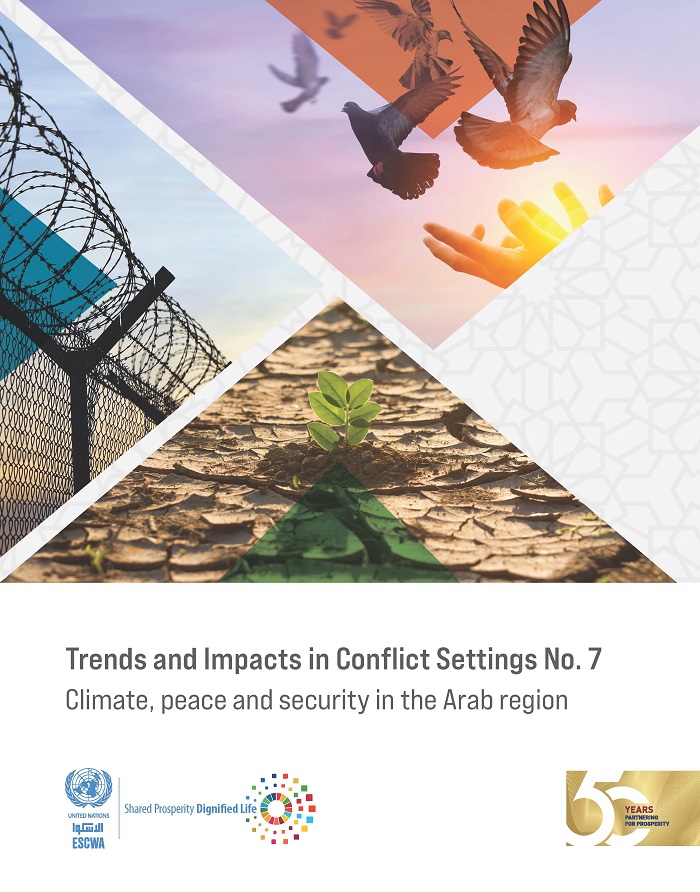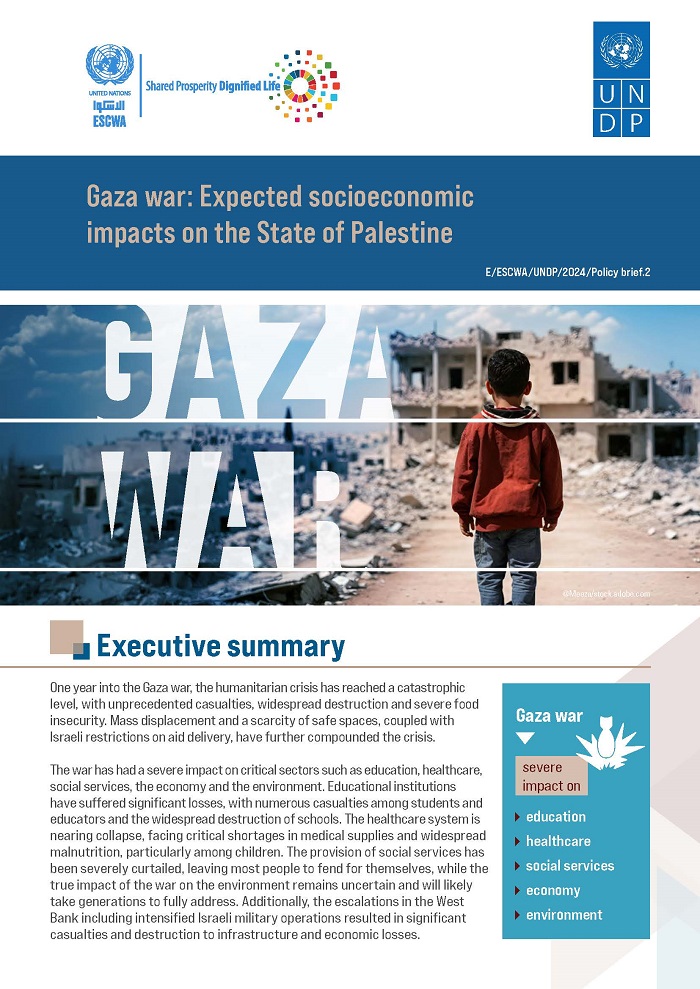
ESCWA Publication: E/ESCWA/CL6.GCP/2023/1
Country: Arab region
Publication Type: Flagship publications
Cluster: Governance and Conflict Prevention
Focus Area: 2030 Agenda, Governance & enabling environment, Resilient development & conflict prevention
Initiatives: Women, peace and security, Climate Resilience through Regional Cooperation
SDGs: Agenda 2030, Goal 1: No Poverty, Goal 2: Zero Hunger, Goal 3: Good Health and Well-Being, Goal 5: Gender Equality, Goal 6: Clean Water and Sanitation, Goal 8: Decent Work and Economic Growth, Goal 11: Sustainable Cities and Communities, Goal 12: Responsible Production and Consumption, Goal 13: Climate Action, Goal 16: Peace, Justice and Strong Institutions
Keywords: Peace, Armed conflicts, National security, Regional security, Climate change, Policy making, Temperature, Floods, Precipitation, Drought, Food security, Natural resources, Risk, Governance, Protest movements, Migration, Income, Living conditions, Recommendations, Statistical data, Arab countries, Climate change adaptation
Trends and Impacts in Conflict Settings No. 7: Climate, peace and security in the Arab region
August 2023
The Arab region is facing the dual challenges of climate change and conflict. Ongoing conflicts and fragility exacerbate environmental degradation, limit resources for climate action and increase vulnerability to climate impacts. Climate impacts, on the other hand, can affect known drivers of insecurity and conflict such as loss of livelihoods and income, food insecurity, competition for resources, and migration. These compounding challenges could lead to a vicious cycle of climate vulnerability, insecurity and conflict unless addressed. Responding to such challenges is thus an imperative, but it is also a window of opportunity to promote peace and prosperity across the region. To this end, this report draws on the latest data with respect to fragility, climate change projections and security risks in the Arab region in order to provide a regional overview of climate security risks. This analysis is used to inform recommendations for policymakers, multilateral agencies and relevant stakeholders to mitigate climate security risks in the region. The report concludes that attention must be paid to inequities, the experiences of different population groups and the specificities of local contexts. The quality of governance and capacity of institutions play a key role in strengthening resilience and moderating the risk of tensions and insecurity. Importantly, integrated and cooperative approaches are vital to effectively address the nexus between climate change, peace and security.
Related content
2030 Agenda
, Governance & enabling environment
, Resilient development & conflict prevention
,
The Arab region is facing the dual challenges of climate change and conflict. Ongoing conflicts and fragility exacerbate environmental degradation, limit resources for climate action and increase vulnerability to climate impacts. Climate impacts, on the other hand, can affect known drivers of insecurity and conflict such as loss of livelihoods and income, food insecurity, competition for resources, and migration. These compounding challenges could lead to a vicious cycle of climate vulnerability, insecurity and conflict unless addressed. Responding to such challenges is thus an imperative, but it is also a window of opportunity to promote peace and prosperity across the region. To this end, this report draws on the latest data with respect to fragility, climate change projections and security risks in the Arab region in order to provide a regional overview of climate security risks. This analysis is used to inform recommendations for policymakers, multilateral agencies and relevant stakeholders to mitigate climate security risks in the region. The report concludes that attention must be paid to inequities, the experiences of different population groups and the specificities of local contexts. The quality of governance and capacity of institutions play a key role in strengthening resilience and moderating the risk of tensions and insecurity. Importantly, integrated and cooperative approaches are vital to effectively address the nexus between climate change, peace and security.



